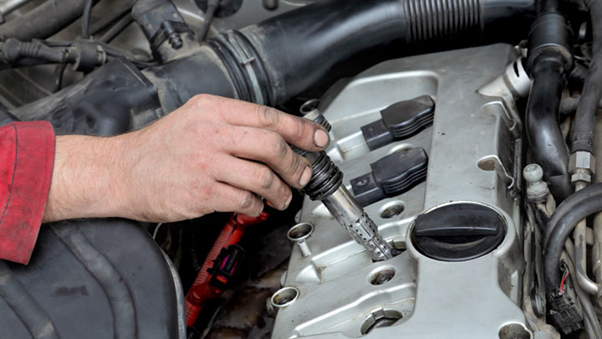Understanding Engine Misfires: 6 Potential Causes

Experiencing engine misfires can be frustrating, but they are typically characterized by incomplete combustion or, in some cases, zero combustion within one or more cylinders. While driving, you may notice hesitation or shaking, and modern vehicles often display the check engine light when a misfire occurs. Explore the common causes of engine misfires and how to address them.
Why Is My Engine Misfiring?
Engine misfires can result from various issues, ranging from defective sensors to fuel injector problems. Here are some common culprits behind engine misfires:
Ignition System Problems
An ignition misfire is often associated with worn-out spark plugs, but it involves multiple components such as control modules, sensors, ignition coils, spark plug wires, and more. Any issues with these components can lead to misfires.
Air and Fuel Delivery Problems
Fuel is supplied to the engine through a complex system involving pumps, injectors, and filters. Any disruption in this system, like a clogged injector or a fuel pump issue, can affect the air-fuel mixture, leading to misfires.
Emissions Equipment Problems
Modern vehicles are equipped with emissions control systems, and problems with components like oxygen sensors, EGR systems, or PCV systems can impact the air-fuel mixture and cause misfires.
Engine Mechanical Problems
Mechanical issues, such as poor cylinder compression due to damaged components, can lead to mechanical misfires, affecting the engine's performance.
Sensor and Module Problems
Various sensors and the Powertrain Control Module (PCM) play crucial roles in controlling engine functions. Sensor malfunctions or PCM problems can contribute to misfires.
Control Circuit Problems
Electrical circuits connect all engine management devices, and issues like damaged wiring or loose connections within these circuits can result in misfires.
Recognizing an Engine Misfire
The sensation of an engine misfire can vary depending on its cause and the driving conditions. Here are some common signs:
Loss of Power
While driving, you may experience intermittent power loss or a momentary hesitation when accelerating. This can be caused by an incorrect air-fuel mixture or low fuel pressure due to sensor issues.
Jerks or Vibrations
A misfiring cylinder can unbalance the engine, leading to noticeable shaking or vibrations. Rough idling, especially at stops or when starting the car, is a sign of fuel system problems causing misfires.
Engine Stalls
Misfires may lead to engine stalling, especially when additional loads like the air conditioner or headlights are used. Some misfires allow continued driving with difficulty, while others result in complete engine stalls.
Recognizing an Engine Misfire Sound
An engine misfire can produce distinct sounds, either inside or outside the vehicle or through the exhaust. Common descriptions include popping, sneezing, banging, chuffing, or backfiring, typically occurring at engine speeds between 1,500 – 2,500 rpm. This sound results from unburnt fuel exiting a misfiring cylinder and igniting in the exhaust system.
Other Symptoms of an Engine Misfire
Additional symptoms include a flashing check engine light, which indicates a severe issue related to misfires. You may also notice black smoke from the exhaust, signifying incorrect fuel and air mixture.
Diagnosing and Addressing Engine Misfires
Given the seriousness of engine misfires and the numerous potential causes, it's advisable to consult a professional mechanic for diagnosis and repair. Mechanics often begin by checking Diagnostic Trouble Codes (DTCs), which provide insights into the problem triggering the misfire. These codes can direct the mechanic to the root cause, whether it's related to specific cylinders or issues like lean misfires. Trusting a professional ensures accurate diagnosis and effective resolution of engine misfire problems.